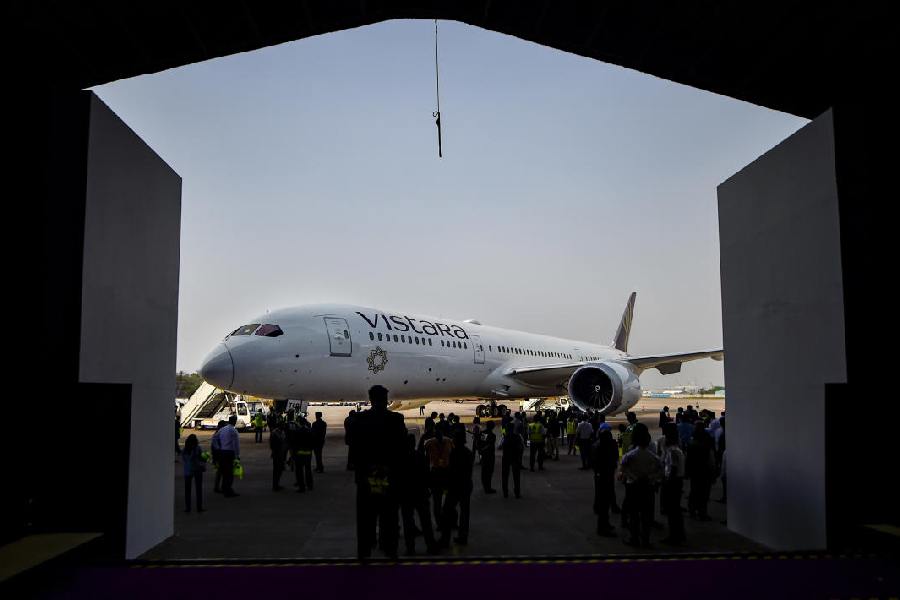Full-service carrier Vistara is caught in severe turbulence, with the Tata and SIA Airlines-owned airline cancelling 100 flights amid resignations by 15 pilots aggrieved over the terms of merger of the airline with Air India, leaving passengers stranded at airports for the past two days.
The civil aviation ministry is monitoring the cancellations. “Flight operations are managed by airlines themselves. Airlines have to comply with DGCA norms to ensure passenger facilitation in case of cancellation or delay of flights,” the ministry said in a post on X.
The regulator DGCA has asked Vistara to submit a daily report of the disruptions as the airline cancelled more than 50 flights for the second straight day on Tuesday because of the non-availability of pilots.
At the heart of the discontent within Vistara is the proposed salary structure.
The Tata Sons management is pushing for pilots to accept reduced flying hours — 40 hours per month, down from 70 — entailing a significant pay cut of between Rs 80,000 and Rs 140,000 a month.
There are also concerns about delays in co-pilots getting upgraded to a wide-body from a narrow body aircraft much later than an Air India pilot in the merged entity.
On paper there is a 3:1 formula, which means for every three Air India pilots who get upgraded to a widebody, one Vistara pilot will get the upgrade. But this is not being adhered to by the management, sources said.
Vistara pilots, facing a March deadline to agree to new contracts, have expressed their dissatisfaction. They have argued that their role, akin to managing assets valued from tens to hundreds of millions of dollars, requires extensive training and skill, justifying a compensation model distinct from that of factory workers.
The pilots have also raised concerns about the airline’s insufficient scheduling infrastructure and the limited number of cockpit crew members, which places them in a constant loop of being on standby or in the air. This severely impacts their work-life balance, underscoring the need for a more considered approach to their working conditions.
It’s worth noting that globally, airlines typically schedule pilots for 70-to-80 hours a month, allowing for a fair balance of work and rest.
Vistara is a joint venture between the Tata Group and Singapore Airlines. It has a fleet of 70 planes comprising 63 aircraft from the A320 family and seven wide-body Boeing 787s.
M.R. Sivaraman, former DGCA director-general, told a news channel that whenever mergers take place, emoluments are always protected.
He feels Vistara has multiple case studies to refer to while executing its merger. Emoluments can be protected by turning them into special pay packages or honorariums.
Aviation experts said the track record of airline mergers globally is notably poor, a fact that the aviation industry is well acquainted with.
They expressed surprise that Tata Sons, the conglomerate that owns Air India, Vistara, Air India Express and Air Asia, appears not to have heeded the lessons of the past.
The analysts said the 2007 merger of Indian Airlines and Air India should have served as a cautionary tale. The integration was marred by a pilot strike due to clashing work cultures — a sore point that persists among many Air India pilots today.
The recent cancellations and operational scale-back have undoubtedly damaged Vistara’s reputation. Many passengers have taken to social media to complain about flight delays and cancellations.
Reflecting the impact of cancellations and delays, Vistara’s on-time performance (OTP) touched 51.4 per cent on April 1 and it was the lowest among the scheduled airlines, as per the latest data from the civil aviation ministry.










